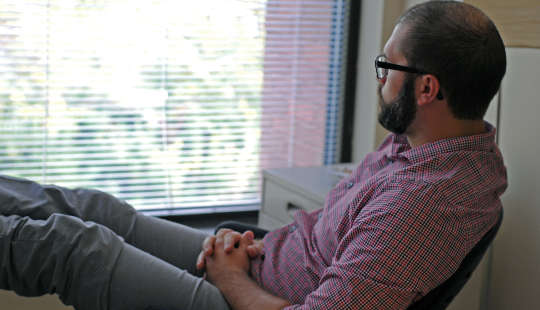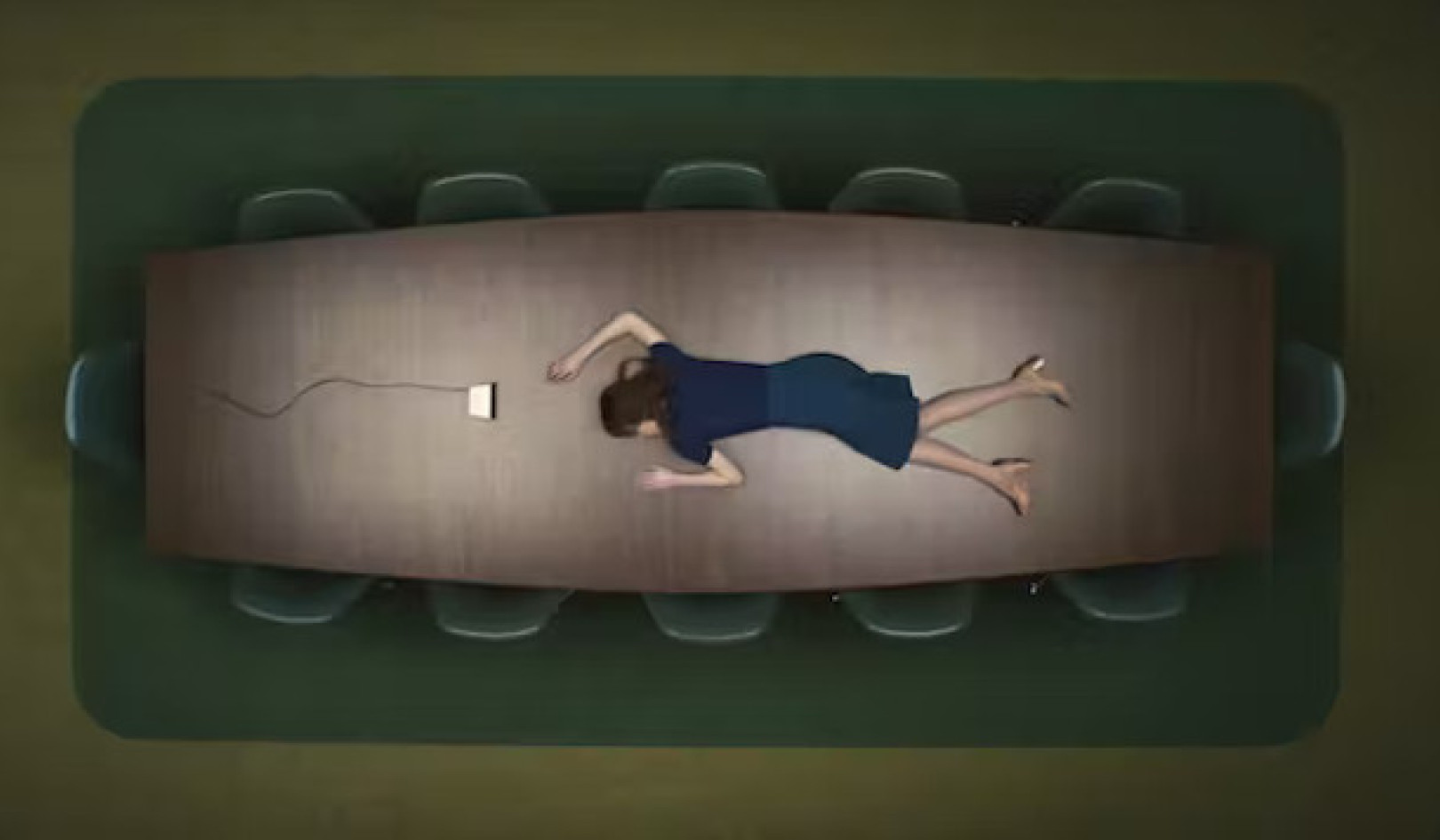
Image by Steve DiMatteo
It's hard to make any real progress on the journey of self-discovery, self-realization, self-empowerment and healing without telling the truth. We have to tell the truth to understand what's going on with us. We have to tell the truth to get the energy moving. We have to tell the truth for change to happen in our lives.
The truth about what? The truth about everything. We have to tell the truth about Life and how we experience it. We have to tell the truth about how we feel. We have to tell the truth about ourselves, about the people we know, about our families, about the situations we've been in, about what has happened to us – and about what we have experienced and what we've been through.
We can only be ourselves by doing this – by telling the truth. If we don't tell the truth, who are we? When we do tell the truth, we find out who we are. Interestingly enough, when this happens – when we tell the truth and are ourselves, we also set ourselves free. Nothing is more liberating than telling the truth.
Freeing Ourselves by Telling the Truth
Until this happens, until we tell the truth, we often remain stuck in our old patterns, programs and belief systems. Our old conditioned responses and habitual reactions just continue. In many cases, these old habits and patterns actually grow stronger because our old patterns of thinking and behaving just gain more and more momentum. So until we begin telling the truth, we often find ourselves stuck in a rut. But the moment we begin telling the truth, the magic of change can begin.
Truth telling is obviously a very well-known, effective therapeutic tool that has been used by psychologists, psychiatrists, psychoanalysts, therapists, coaches, counselors, self-help groups, 12-step programs and more, for many, many years. But even though this is the case – and even though many people today know about or have heard about the benefits of truth telling – it can still be very beneficial for us to look at what exactly truth telling is all about – and how to do it.
Tell What Happened To You
Firstly, truth telling is telling what you have experienced. In other words, what happened and how you experienced it and how you felt about it and how you feel about it today. It's all about you. It's not about what other people think happened. It's not about what your mother or father thought or think happened. It's not about what your partner thinks happened or what your children think happened. It's just about you. What you think happened. Your experience. That's it.
It's also not about what you think you "should" think and feel. It's about what you actually do think and feel. It's about getting in touch with yourself. With your life experience. With what you know to be true for you. Without censoring it or modifying it or editing it. But, this is not an easy thing to do for any of us. For several reasons:
First of all because so many of us are afraid of the consequences and of what will happen if we actually do tell the truth. That is why I always say to clients when we’re doing truth telling in my office, let’s just forget about the consequences for now. Let’s make the decision that you are going to tell the truth and that you don’t have to act on what you are discovering and saying (not now and not ever) if you don’t want to.
Just tell me the truth. Just say it for you. You don’t have to tell another soul. Just start by telling me (your coach/therapist). Your truth is safe with me, I am never going to tell another soul.
I also always say to people that once they’ve told the truth, if they do want to do something about it and say something to other people, well, then we come to the matter of what I call “constructive communications”. In other words, how to communicate respectfully and skillfully with the people you may have issues with. But that is a whole other project. For now, let’s just leave worrying about what to do with this information aside and focus on doing truth telling.
The second reason why we're not used to telling the truth is because we've been programmed from an early age to believe there is a right and wrong way to think and feel. Moreover, most of us have also been programmed to please others. This is why it can be quite challenging and even anxiety-provoking to get in touch with what you really and truly think and feel. And then – on top of that – to actually say it out loud to another person. Wow. Now that often takes great courage.
But it's a good thing to do. It really is. Because – as anyone who has tried it will tell you – you just feel better when you tell the truth about how you feel. You just feel lighter, more enlightened, and relieved. And you feel more clarity about who you are and what you've experienced. That's just the way it is. And when you feel better, relieved, lighter, you just know for yourself that truth telling actually works.
This is what truth-telling is all about in its most basic form.
Telling The Truth To Another Person
There are different ways one can tell the truth. Let’s start with telling the truth to another person. In practice, it's often easiest and best to go to a professional therapist, psychologist, psychotherapist or coach and tell the truth to this person. Because this person is trained to listen and acknowledge you and probably has some understanding of the challenges we human beings face in our daily lives. Sessions with a trusted therapist can truly be life-changing and liberating.
This can often be challenging and it might take a while to get into the flow of actually talking honestly to another person. But I highly recommend you give it a try and see what happens. It is also important to be aware that if the chemistry is not good between you and this person, you should go to someone else. You have an Inner Compass and if you do not feel comfortable with this person, go somewhere else. And don’t be afraid to try several people until you find someone you feel safe and comfortable with. Again this is about learning to trust your truth.
And What About Talking To Friends?
Most of us do this to begin with, but I often warn my clients about being realistic when it comes to talking to their friends about their issues. The problem with talking to friends is that even though your friends care for you and want to support you and really do wish you well, your friends are usually not trained to listen and encourage you to find your own truth.
Most often your friends will have their own ideas about what is best for you – so listening to friends can often make people feel even more confused. I hear this all the time from my clients. This is why I often suggest to clients to take a break from discussing their issues with their friends, at least while they are working with me. And until they get a little more clarity about who they really are and feel a little more stable, in terms of who they are and in terms of acknowledging their own truth.
This is also why it's important to learn to trust and follow your own internal guidance system, your inner compass, if you want to live more happily and be more in alignment with your own truth. It's also good to remember that the sign of a good coach or therapist is that this person will almost never tell you what to do but will encourage you to find your own answers.
©2022 Barbara Berger. All Rights Reserved.
Book by this Author
Find and Follow Your Inner Compass
Find and Follow Your Inner Compass: Instant Guidance in an Age of Information Overload
by Barbara Berger.

In a time when we are bombarded from morning to evening with information from all sides as to what is best and what we should and shouldn't do to live happy lives, how can we navigate through this massive sea of information and know what's best for us in any given situation?
In this book, Barbara Berger maps out what the Inner Compass is and how we can read its signals. How do we use the Inner Compass in our daily lives, at work and in our relationships? What sabotages our ability to listen to and follow the Inner Compass? What do we do when the Inner Compass points us in a direction we believe other people will disapprove of? Find and follow your Inner Compass and experience more flow and joy in your life.
Click for more info or to order this book. Also available as a Kindle edition.
About the Author

Barbara Berger has written over 15 self-empowerment books, including her international bestsellers "The Road to Power / Fast Food for the Soul" (published in 30 languages) and "Are You Happy Now? 10 Ways to Live a Happy Life" (published in 21 languages). She is also the author of “The Awakening Human Being – A Guide to the Power of Mind” and “Find and Follow Your Inner Compass”. Barbara's latest books are “Healthy Models for Relationships – The Basic Principles Behind Good Relationships” and her autobiography “My Road to Power – Sex, Trauma & Higher Consciousness”..
American-born, Barbara now lives and works in Copenhagen, Denmark. In addition to her books, she offers private sessions to individuals who wish to work intensely with her (in her office in Copenhagen or on Zoom, Skype and telephone for people who live far away from Copenhagen).
For more about Barbara Berger, see her website: www.beamteam.com




























